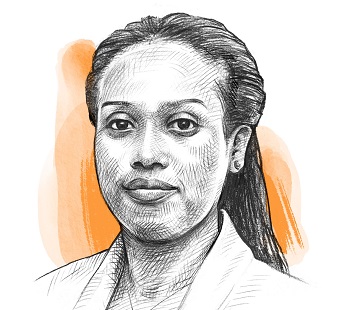Mission to Support the Mobilisation of Internal Resources (MAMRI) – Guinea
Objective
-
€0.5mBUDGET
-
04/11/2019PROJECT START
-
15 monthsDURATION
Mobilising internal resources, a challenge for development
Mobilising and securing internal resources is a crucial issue for the economic and social development of Guinea. There is currently a substantial source of internal resources to exploit: the domestic resources/GDP ratio is under 13% in Guinea, against an average of 18% in the subregion.
The only way to finance public policies for stronger and, especially, more inclusive growth for all Guineans is to significantly and sustainably increase these resources.
The Mission to Support the Mobilisation of Internal Resources (MAMRI) was set up in 2019, by presidential decree, to address this challenge.
Objectives of MAMRI
The objective of MAMRI is to increase the domestic resources/GDP ratio to at least 20% of gross domestic product (GDP), in line with the recommendations of the Addis Ababa Conference on Financing for Development.
To achieve this, MAMRI will:
• Provide political and technical support for the reforms that are underway or already planned to accelerate the production of the expected results
• Drive and manage the implementation of a new generation of reforms based on international best practices
• Coordinate all the ongoing and future reforms under a clear, coherent and shared multi-year government strategy
• Develop an operational logic based on responsibility and performance in the financial authorities.
Mechanism
MAMRI is much more than a project. It is a mechanism to accelerate reforms and results that simultaneously comprises:
• A specific interministerial governance mechanism, with a steering committee chaired by the Prime Minister
• A mechanism for coordination between the administrations directly involved in the issue of mobilising and securing domestic resources
• A process to improve performance involving all the stakeholders: ministries and authorities, private sector professional organisations, civil society organisations, technical and financial partners
• A mission structure reporting to the Prime Minister’s Office, responsible for supporting the reform dynamics and preparing the files to be sent to the decision-making bodies of MAMRI
Scope of action
MAMRI’s action is based on two areas:
• Firstly, supporting the modernisation of State taxation and local taxation and the streamlining of tax expenditures;
• Secondly, supporting the modernisation of tax administrations and the other public finance authorities, with a focus on digital transformation.
It targets both tax revenues and customs and non-tax revenues.
Deployment strategy
1. From now until the end of the first half of 2021: six diagnostic-recommendations studies covering all the issues related to mobilising and securing domestic resources. At the same time, the definition and implementation of actions for targeted progress with rapid results;
2. In the summer of 2021: definition of a national strategy for the mobilisation of domestic resources, including a project portfolio;
3. Starting in September 2021: operationalisation and phased implementation of projects in the portfolio.
Expertise France’s assistance
Expertise France is assisting MAMRI with:
• The definition of a strategy for the establishment and phased ramp-up of the Mission
• Its internal organisation: operational organisation of the mission structure, recruitment of staff, strengthening of their expert capacities
• The creation and maintenance of a budgetary and documentary database on domestic revenue and the processes to mobilise this revenue, in Guinea and internationally
• The conducting of pre-diagnostics covering all the issues related to mobilising-securing revenue
• The preparation of a range of tax policy measures and administrative measures able to consolidate the ongoing reforms and rapidly produce results
• The definition of a portfolio of structural diagnostic studies and the preparation of the corresponding terms of reference
• The preparation of the launch of a TADAT (Tax Administration Diagnostic Assessment Tool) to assess the performance of the current tax administration system
• The conducting of a study for the reform of the financing system of local authorities
• The definition and implementation of a communication plan for MAMRI
• The organisation of a strategic dialogue and the establishment of partnerships between MAMRI and international donors


